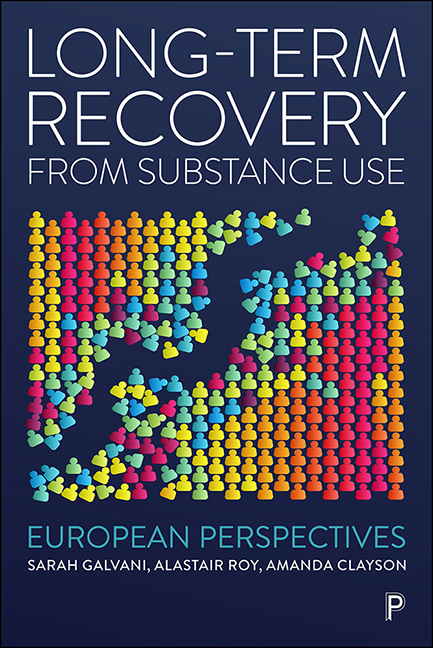PART II - Intimate relationships, trauma and long-term recovery
Published online by Cambridge University Press: 15 September 2022
Summary
In Part II of this book we delve deeply into the lives of people with lived experience of substance use and histories of complex, often highly abusive close relationships. Because of this, it comes with a health warning; some of the data and voices contained within these chapters are deeply personal, sensitive, powerful and moving. We have utmost respect for the people who spoke out about their experiences and the researchers who enabled discussions that are not often heard in research on this topic, if at all. In Chapter 6 the focus is on the impact of substance use on the longer-term recovery of people's sexual selves. The authors graphically highlight how sexuality and sexual activity are experienced under the influence of drugs, and the fear, guilt, loss and shame people experience when the drugs are no longer there. Both men and women discuss their ignorance of sexuality and sexual performance when substance free, and the associated fear that they cannot perform sexually or have ‘normal’ sexual relationships. The authors emphasise the need for treatment services to include discussion of sexuality to help people to overcome the ‘sexual stigma’ of drug use and the limited and limiting ‘sexual script’ relating to substance use and sexuality. In Chapter 7 the authors introduce the centrality of trauma to women's experience of substance use and long-term recovery. In a powerful and moving pen portrait of ‘Laura’, the authors highlight the complexities of substance use recovery when combined with recovery from violent victimisation. The recovery from violence and abuse becomes an ‘additional dimension’ to Laura's long-term recovery process. Indeed, they challenge the limiting notions some definitions place on long-term recovery, pointing out that for someone with a 50-year history of using substances, three years is a very long recovery period. It is important for practitioners, they state, to engage with the potential ongoing trauma women with such experiences face, and to understand that substance use can be a coping mechanism which should be removed with care and with support in place. Chapter 8 places women partners of people using substances at the core of the chapter. The authors discuss the impact of being in a relationship with someone in long-term recovery and how, as partners, they influence, and can be influenced by, their substance using partner.
- Type
- Chapter
- Information
- Long-Term Recovery from Substance UseEuropean Perspectives, pp. 65 - 66Publisher: Bristol University PressPrint publication year: 2022



